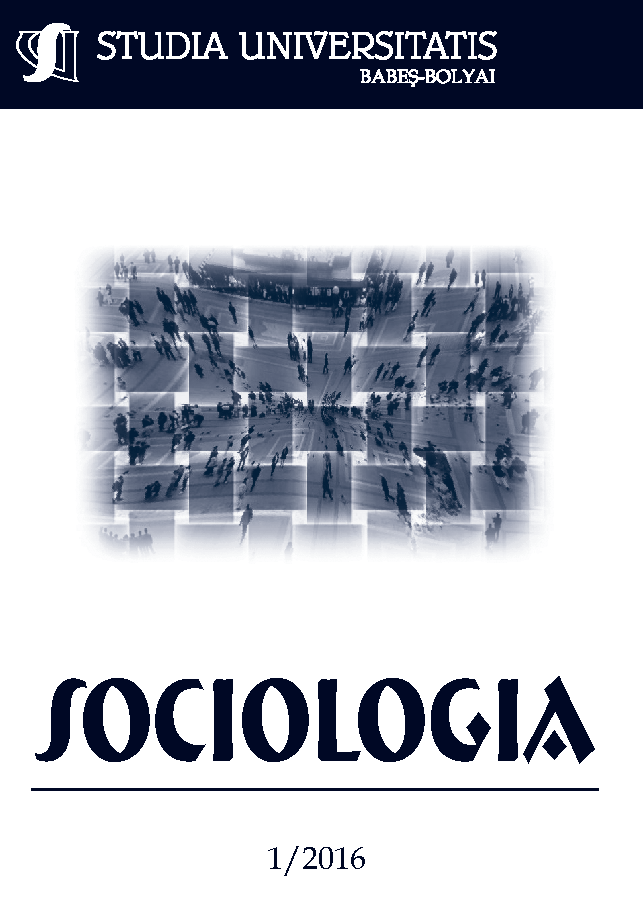AN ALTERNATIVE PERIODIZATION OF ROMANIAN HISTORY. A RESEARCH AGENDA
Keywords:
historical periodization, world-system theories, world-economy, Romanian historyAbstract
In this paper, I suggest an alternative form of periodization of Romanian history. My aim is not to move around historical posts; rather I propose a different way of understanding Romanian history as such. This is the research agenda. I seek to write a world history from the perspective of a peripheral place like Romania has been. Therefore, this is not simply an attempt to insert a local, neglected, silenced or distorted history into a wider, European, global story (that is, to discover the history of people without history), just as it is not another attempt to provincialize Europe in favour of a view from its repressed margins. Instead, following Coronil (2004), I believe it is indispensable to globalize the periphery, to understand its worldwide formation. My investigation draws upon the conceptual toolkit of world-system theory and its underlining philosophy of history (Wallerstein, 2011). In the same vein, the guiding principles of my periodization elaborate on Andre Gunder Frank’s insight that the exchange (or rather direct transfer) of surplus between societies is what links regions and societies as whole (Frank, 1978). The focus then shifts from a given society/state and its internal relations to the wider world-system, or world-economy, in which it is embedded. The unit of analysis is not a geographical location, but relations and networks and their historical development.
References
Arrighi, G. (2010). The long twentieth century. Money, power and the origins of our time. London: Verso.
Brenner, R. (1977). The origins of capitalist development. A critique of neo-Smithian Marxism. New Left Review, I/104, pp. 25-92.
Chirot, D. (1976). Social change in a peripheral society. The creation of a Balkan colony. New York: Academic Press.
Coronil, F. (2004). Latin American postcolonial studies and global decolonization. In N. Lazarus (ed.): Postcolonial literary studies. Cambridge: Cambridge University Press, pp. 221-240.
Frank, A. G. (1978). World Accumulation (1492-1789). New York: Monthly Review Press.
Georgescu, V. (1992). Istoria Românilor [The History of Romanians]. București: Humanitas.
Green, W. A. (1992). Periodization in European and World History. Journal of World History, 3(1): 13-53.
Hitchins, K. (2013). România (1866-1944). București: Humanitas.
Koselleck, R. (2002). The practice of conceptual history. Timing history, spacing concepts. Stanford: Stanford University Press.
Lewis, B. (2009). The Periodization of history. Lecture delivered at Princeton University on 07/01/08, http://www.gatestoneinstitute.org/323/the-periodization-of-history---excerpts, [Last accessed 27.05.2016].
Pătrășcanu, L. (1969). Un veac de frământări sociale [A century of social unrest]. Bucharest: Editura Politică.
Rusu, M.S. (2013). Topografii ale trecutului: structurarea şi restructurarea conştiinţei istorice româneşti prin manualele naţionale de istorie [Topographies of the past: the structuration and restructuration of Romanian historical conscience through history handbooks]. Sociologie Românească, 9(1): 84-102.
Wallerstein, I. (2011). Historical Capitalism with Capitalist Civilization. London: Verso.
Downloads
Published
How to Cite
Issue
Section
License
Copyright (c) 2016 Studia Universitatis Babeș-Bolyai Sociologia

This work is licensed under a Creative Commons Attribution-NonCommercial-NoDerivatives 4.0 International License.



